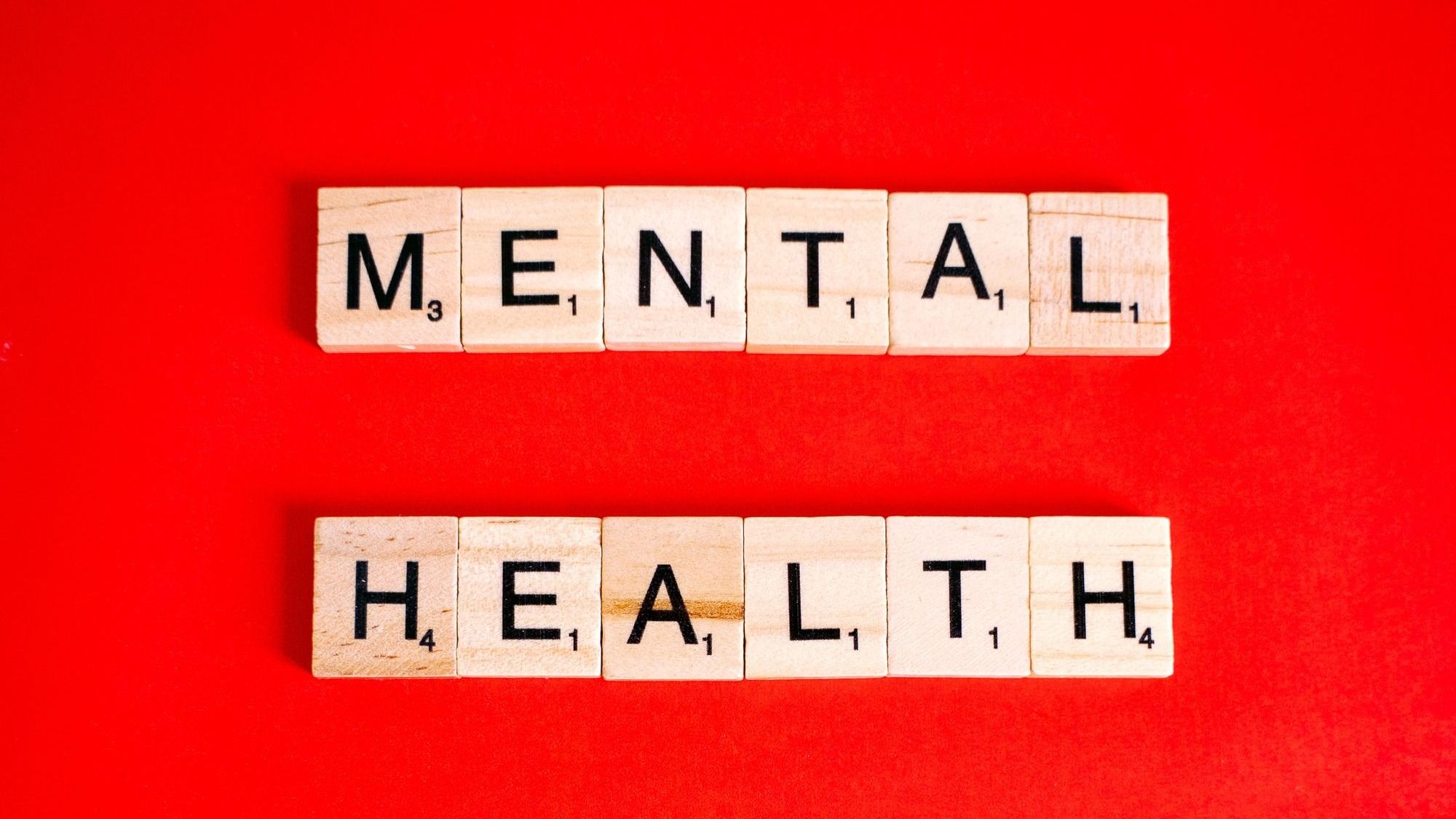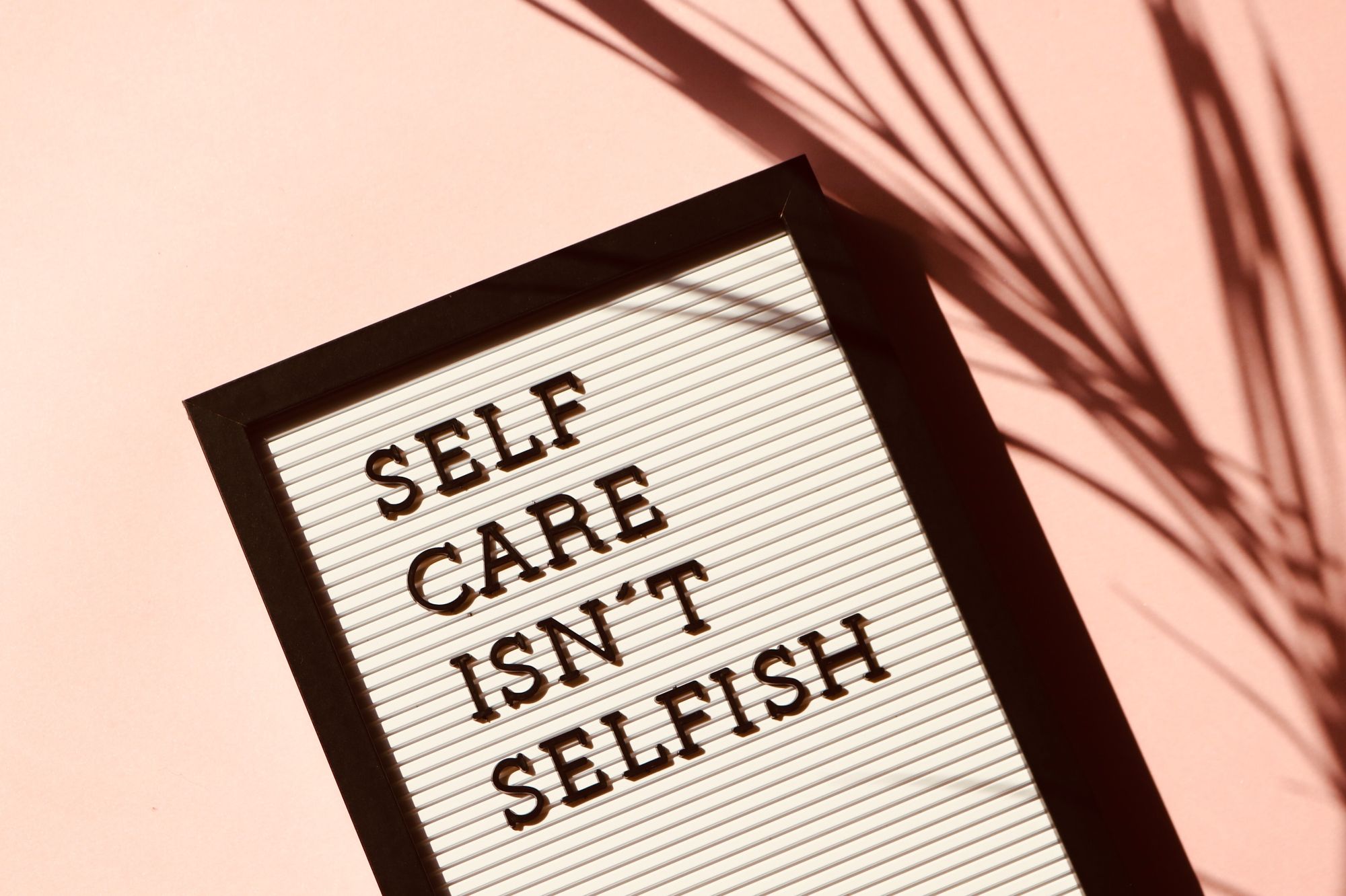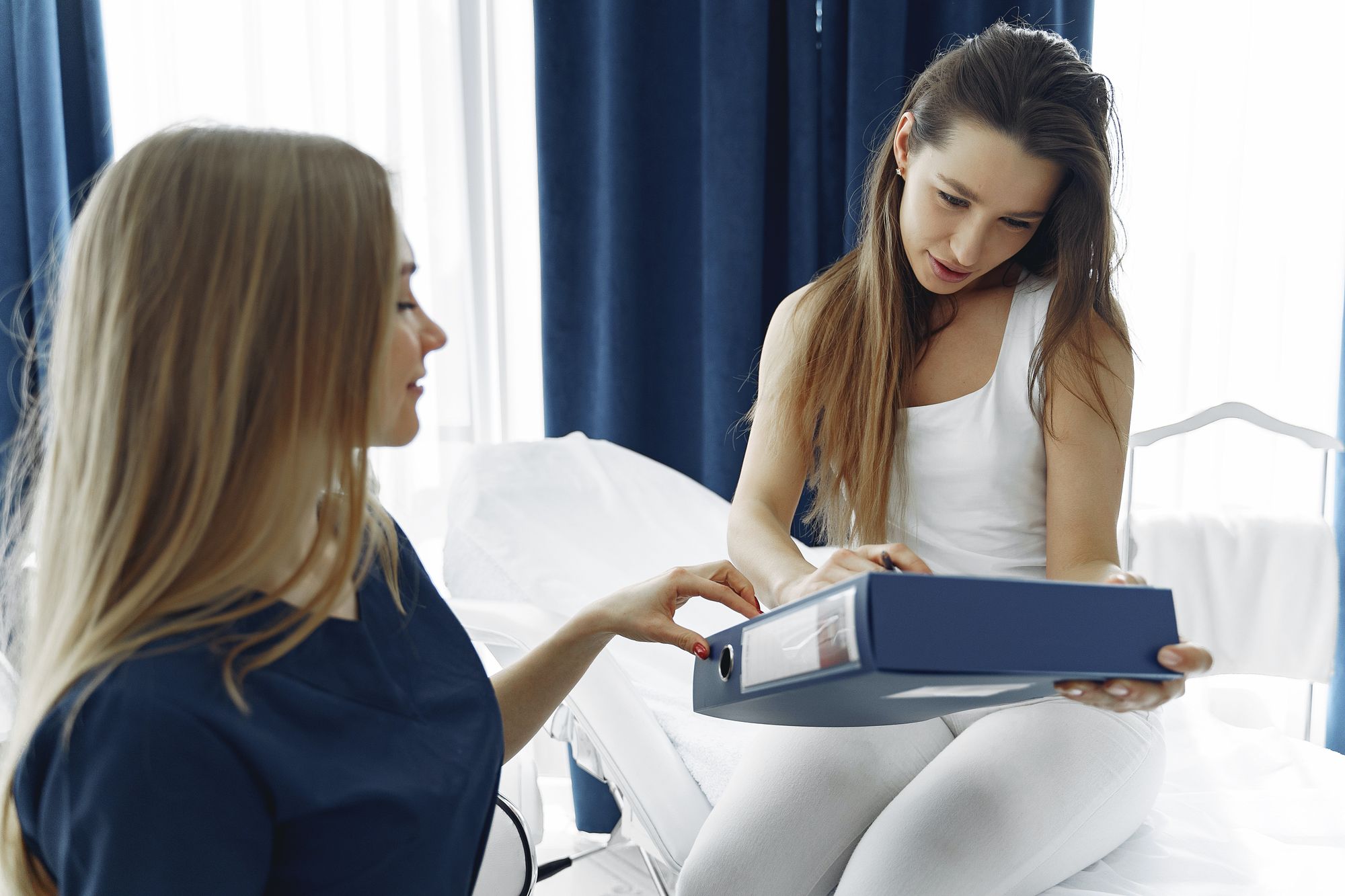The Ultimate Guide to Mental Health Self Care for Caregivers
In this blog post, we’ll explore the essential practice of mental health self-care for caregivers and provide you with tips and resources to help maintain your well-being while caring for others.

Imagine being the rock that supports others, consistently providing care and emotional support, but forgetting to care for yourself. For caregivers, the risk of neglecting self-care is all too real. In this blog post, we'll explore the essential practice of mental health self-care for caregivers and provide you with tips and resources to help maintain your well-being while caring for others.
Short Summary
- Understanding Mental Health Self-Care is about creating a proactive routine to maintain emotional, psychological and social well-being.
- Practicing self care and having a strong support system are key elements in managing stress for caregivers.
- Establishing a comprehensive self care routine involves making time for activities that promote wellness & accessing helpful resources like therapy or counseling.
Understanding Mental Health Self-Care

When we talk about mental health, we're referring to our emotional, psychological, and social well-being. Maintaining good mental health is crucial for everyone, but it's especially important for caregivers who face unique challenges. Practicing self-care is an essential part of maintaining good mental health. It involves engaging in activities that promote physical, mental, and emotional well-being, helping to prevent disease, promote health, and even help people better cope with illness.
Organizations like Mental Health America recommend establishing a proactive self-care routine to improve personal well-being, work performance, relationships, and physical health. So, what does self-care look like, and how can caregivers create a comprehensive self-care routine that addresses all aspects of their well-being?
Defining Self-Care

The World Health Organization defines self-care as a set of activities and responsibilities for one's own health. This includes the ability to promote health, prevent disease, maintain health and deal with illness or disability independently or with the help of a health professional. Self-care includes mental self-care activities like getting into a state of flow, pushing yourself mentally, and picking up new skills.
Practicing self-care means being proactive about your well-being, addressing your physical self care, mental, and emotional health to create a balanced and healthy life.
The Role of Self-Care in Mental Health for Caregivers
For caregivers, self-care plays a crucial role in managing stress, preventing burnout, and maintaining the ability to provide quality care to their loved ones. Self-care activities such as getting enough sleep, eating a balanced diet, exercising regularly, engaging in hobbies, and taking time for oneself can help caregivers manage their mental health and avoid burnout.
Moreover, a strong support system can provide emotional and practical support, help reduce stress, and provide a sense of connection and belonging.
Components of a Comprehensive Self-Care Routine
A comprehensive self-care routine should address the various aspects of well-being, including emotional, physical, and spiritual health. By addressing these aspects, caregivers can ensure they are taking care of their overall well-being and maintaining the resilience and energy needed to care for others.
Physical health is a key component of mental health self-care, especially when dealing with mental health challenges such as anxiety and depression. Regular physical activity can help boost executive function, reduce chronic stress, and improve body image.
Emotional health, on the other hand, involves practices such as therapy, journaling, and mindfulness to manage emotions and stress. Finally, spiritual health can be achieved through meditation, prayer, or connecting with nature to foster a sense of purpose and inner peace.
Emotional Health

Emotional health is all about how we think, feel, and handle our emotions. People who are emotionally healthy usually have good coping skills, resilience, positivity, and self-esteem. Emotional self-care involves recognizing and managing your emotions in a positive way.
Therapy, journaling, and mindfulness are all great ways to promote emotional health. These activities can help caregivers process their emotions, gain insight into their feelings, and develop strategies for managing stress. Additionally, engaging in leisure activities, such as reading, listening to music, or spending time with loved ones, can also contribute to emotional well-being.
Physical Health

Physical health is not just about being free from diseases, but also about taking care of yourself through exercise, having a balanced diet, getting enough rest, and avoiding unhealthy habits. Exercising regularly can improve mental health, reduce stress, and help you sleep better. Proper nutrition can lower your risk of certain diseases and enhance your overall wellbeing, as well as improve mental health and reduce stress.
To maintain physical health, caregivers should prioritize regular exercise, proper nutrition, and addressing any health concerns. This can include getting regular check-ups, managing stress, and avoiding unhealthy habits like smoking and drinking too much.
Spiritual Health

Spiritual self care can be achieved through meditation, prayer, or connecting with nature, fostering a sense of purpose and inner peace. Spending time in nature has been linked to lower stress levels, improved cognition, positive affect, and subjective well-being.
Caregivers can easily make time for nature by combining it with activities they already do, like reading outdoors, eating lunch in the fresh air, or taking a walking meeting.
Practical Tips for Mental Health Self-Care

To develop and maintain a self-care routine, caregivers should consider practical tips that can be easily incorporated into their daily lives. These tips include establishing a routine, overcoming obstacles, and finding activities that promote relaxation and well-being. By incorporating these practical tips, caregivers can better manage their mental health and ensure they have the energy and resilience needed to care for others.
Remember that self-care is a personal journey, and what works for one person may not work for another. It's important to experiment with different self-care activities and practices to find what works best for you and your unique needs. One valuable self care tip is to remain open to trying new approaches and techniques.
Establishing a Self-Care Routine

Creating a self-care routine involves setting aside time for activities that promote mental, emotional, and physical health, and making it a priority in daily life. When it comes to self-care, the key is to start small. Pick a few activities that you can easily fit into your daily life, such as exercise, healthy eating, or mindfulness practice, and then add more as you get used to the routine. In doing so, you will effectively practice self care.
To stay consistent with your self-care routine, it's important to set achievable goals and break tasks down into smaller pieces. This can help make the routine more manageable and ensure that you're taking the time to prioritize your own well-being.
Overcoming Obstacles to Self-Care
Overcoming obstacles to self-care may involve setting boundaries, asking for help, and recognizing the importance of taking care of oneself. Some common obstacles to self-care include not having enough time, feeling guilty, and being overwhelmed. To tackle these challenges, it's essential to prioritize self-care, set realistic goals, and be grateful and positive.
Additionally, it's important to reach out to loved ones for support and assistance in managing self-care tasks.
Support Systems and Resources

Support systems and resources are essential for caregivers to maintain their mental health and well-being. By having a strong support network and accessing helpful resources, caregivers can better manage their mental health and provide quality care for their loved ones.
Professional help, such as therapy or counseling, can provide guidance and support for managing stress and mental health concerns. Additionally, local support groups can offer a safe space for caregivers to share experiences, learn from others, and find resources.
Family Members and Friends

Family members and friends can provide emotional support, encouragement, and assistance with caregiving tasks. By having open and honest conversations about their feelings and needs, caregivers can involve their loved ones in their self-care journey. This support system can help reduce feelings of loneliness and isolation, and provide a sense of community.
Remember to respect their boundaries and be mindful of their own needs as well. Taking the time to nurture relationships with family and friends can be a great source of comfort and strength.
Local Support Groups

Local support groups offer a safe space for caregivers to share experiences, learn from others, and find resources. You may want to explore online or in person support groups to suit your needs.
These groups can help ease feelings of loneliness and isolation, and provide a sense of community and belonging.
Professional Help

Professional help, such as therapy or counseling, can provide guidance and support for managing stress and mental health concerns. They can offer counseling, therapy, and medication, as well as support groups, workshops, and other resources to help caregivers improve their mental health and self-care practices.
If you're unsure of where to begin, you can check out resources such as the National Institute of Mental Health (NIMH) Tips for Talking with a Health Care Provider About Your Mental Health or look for a provider on the NIMH's Help for Mental Illness webpage.
Monitoring Progress and Adjusting Your Self-Care Plan

Monitoring progress and adjusting self-care strategies is crucial for maintaining mental health and well-being. By keeping track of daily habits, mood, and mental health changes, caregivers can identify areas that need improvement and adjust their self-care routine accordingly. This can help ensure that caregivers are taking care of their overall well-being and maintaining the resilience and energy needed to care for others.
It is important to be flexible and adapt self-care strategies based on personal needs and circumstances. As a caregiver, your needs may change over time, and it's essential to reassess and adjust your self-care routine to ensure it continues to support your mental health and well-being.
Tracking Mental Health Changes
Tracking mental health changes can help caregivers identify areas that need improvement and adjust their self-care routine accordingly. Keeping a journal, using a mood tracker app, or consulting with a mental health professional are all great ways to monitor your mental health. Apps like Daylio, MoodKit, and Sanvello are some of the top picks for mental health tracking.
Monitoring your mental health can help you spot any areas that need improvement and adjust your self-care routine accordingly. By staying aware of your mental health and making necessary adjustments, you can ensure that your self-care practices continue to support your overall well-being.
Adapting Self-Care Strategies
Adapting self-care strategies involves reassessing needs, trying new activities, and finding what works best for each individual caregiver. As your needs and circumstances change, it's important to remain flexible and adjust your self-care routine accordingly. This could involve experimenting with different self-care activities and practices to find what works best for you.
Remember, self-care is a personal journey, and what works for one person may not work for another. It's essential to be open to trying new strategies and adjusting your self-care routine as needed, ensuring that you continue to prioritize your mental health and well-being.
Summary
In conclusion, mental health self-care is crucial for caregivers to maintain their well-being and provide quality care for their loved ones. By understanding the importance of self-care, establishing a comprehensive routine, and utilizing support systems and resources, caregivers can better manage their mental health and face the challenges that come with caring for others. Remember, self-care is a personal journey, and it's essential to remain flexible and adapt strategies based on your unique needs and circumstances. Keep prioritizing your mental health and well-being, and you'll be better equipped to care for others.
Frequently Asked Questions (FAQ)
A Guide to Mental Health Self-Care for Caregivers
Why is mental health self-care important for caregivers? Mental health self-care for caregivers is essential because caregiving responsibilities can lead to prolonged stress, which increases the risk of mental health issues like anxiety, depression, and burnout. Taking care of your own health helps ensure you can provide better care for your loved one.
How does caregiving affect my physical and mental health? Caregiving can take a toll on both physical and mental health. It often leads to physical demands such as frequent headaches, high blood pressure, or trouble sleeping. Mentally, caregivers can experience feelings of guilt, losing interest in hobbies, or prolonged stress. It is important to address these warning signs early.
What are some warning signs that caregiving is impacting my health? Common warning signs include:
- Trouble sleeping or sleep problems
- Feeling constantly tired, overwhelmed, or irritable
- Frequent headaches or other physical health problems
- Losing interest in activities you once enjoyed
- Feeling guilty or anxious
- Increased risk of high blood pressure or heart problems
How can I manage stress while juggling caregiving tasks? To manage stress effectively:
- Prioritize self-care, including getting a good night's sleep and eating a well-balanced diet.
- Engage in regular physical activity to support both physical and mental health.
- Seek support from caregiver support groups or mental health professionals like a licensed clinical social worker.
- Use community resources such as respite care and local area agencies on aging.
- Take breaks and ask other family members to share caregiving tasks.
How do I address caregiver burnout? Caregiver burnout occurs when caregiving responsibilities become overwhelming. To prevent or reduce burnout:
- Take a few hours each week to focus on your own well-being.
- Seek respite care services to allow time for yourself.
- Prioritize sleep and drink plenty of water to maintain physical health.
- Join caregiver support groups to gain emotional and social support.
- Consult health care professionals to address mental health or medical treatment needs.
What are practical self-care tips for caregivers?
- Eat a well-balanced diet and drink plenty of water.
- Prioritize getting enough sleep and creating a bedtime routine to reduce sleep problems.
- Incorporate physical activity like walking, yoga, or stretching into your day.
- Schedule regular medical appointments to monitor your own health.
- Engage in activities you enjoy to manage stress and maintain well-being.
How can caregiver support groups help? Caregiver support groups provide a space to share experiences, gain advice, and receive encouragement from other caregivers. Groups like the Family Caregiver Alliance and other local resources offer practical tips, emotional support, and community connections.
What are the benefits of respite care? Respite care allows caregivers to take a break from their caregiving role. Whether for a few hours or a full day, respite care helps caregivers recharge physically and mentally, reducing caregiver stress and preventing burnout.
How do I involve other family members in caregiving tasks?
- Schedule a family meeting to discuss caregiving responsibilities.
- Delegate specific tasks such as meal preparation, household chores, or taking the care recipient to medical appointments.
- Communicate openly about your needs and seek more support from family members.
What steps should I take if caregiving affects my mental health? If caregiving is impacting your mental health:
- Consult a licensed clinical social worker or therapist.
- Use mental health resources to address anxiety, depression, or other mental health issues.
- Explore respite care options for short-term relief.
- Seek support from caregiver groups or trusted family members.
- Practice daily self-care routines to reduce stress and improve well-being.
How can I maintain balance between my caregiving responsibilities and my own needs? Maintaining balance involves:
- Setting boundaries and learning to say no when overwhelmed.
- Prioritizing self-care as a non-negotiable part of your day.
- Seeking support from health care professionals or support groups.
- Using local resources, like community caregiving services, to share the load.
Are caregivers at a higher risk for health problems? Yes. Many caregivers face an increased risk of chronic illness, high blood pressure, depression, and sleep problems due to prolonged stress and physical demands. Addressing these issues early and prioritizing self-care is essential to avoid long-term health complications.
What are local resources or organizations that support caregivers? Resources include:
- Family Caregiver Alliance
- Local Area Agencies on Aging
- Respite care providers for short-term relief
- Caregiver support groups in your community or online
- Health care professionals and licensed social workers
How can I overcome feelings of guilt when taking care of myself? Feeling guilty is common among caregivers, but self-care for caregivers is not selfish. Remind yourself that caring for your own health allows you to provide better care for your loved one. Seeking support and taking breaks are vital for long-term caregiving.
How can I reduce the physical demands of caregiving?
- Share tasks with other caregivers or family members.
- Seek professional caregiving services for tasks like meal preparation or nursing home care.
- Take breaks and engage in physical activity to strengthen your body and manage stress.
- Use resources like respite care and caregiver support groups for more support.
What is the role of medical treatment for caregivers? Caregivers should prioritize their own medical treatment by:
- Scheduling regular check-ups with health care professionals.
- Monitoring their own warning signs, like chronic headaches or high blood pressure.
- Addressing prolonged stress through therapy or counseling.
How can I seek social support while caregiving?
- Join caregiver support groups, either in-person or online.
- Attend family meetings to share caregiving responsibilities with other family members.
- Use local community resources to connect with other caregivers facing similar challenges.
Why is physical activity important for caregivers? Regular physical activity helps caregivers reduce stress, improve physical health, and maintain mental well-being. Simple exercises like walking, stretching, or yoga can alleviate physical and emotional strain.
What should I do if I have trouble sleeping or prolonged stress?
- Establish a bedtime routine to promote a good night's sleep.
- Seek medical advice if trouble sleeping persists.
- Practice mindfulness, guided imagery, or relaxation exercises to reduce stress.
- Take breaks from caregiving to focus on your own needs.
How does caregiving impact older adults caring for loved ones with Alzheimer's disease? Older adults caring for someone with Alzheimer's disease face unique challenges, such as physical demands, emotional strain, and the need for constant supervision. Support from respite care services, family members, and caregiver support groups can provide relief and help manage stress.
What is the takeaway for caregivers? Taking care of your own health, both physically and mentally, is essential. Prioritize self-care, seek support, and use available resources to reduce caregiver stress and improve your overall well-being. Remember, your well-being matters too.





